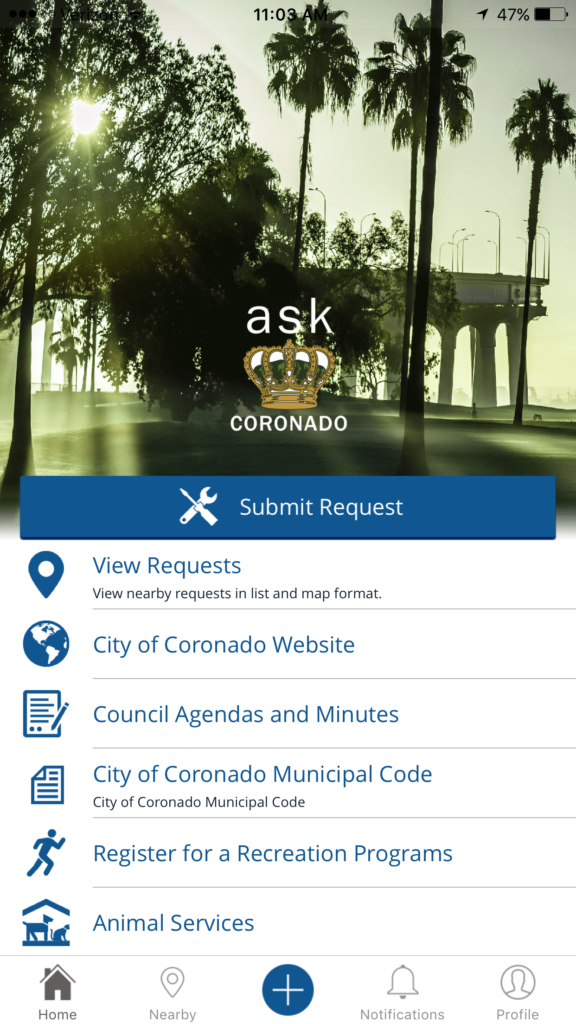Much of the March 7th city council meeting was informational. Members received and accepted reports on traffic and accessory dwelling units (ADUs), and received an update on the city’s online reporting and work order app.
The council also voted on a no parking zone in the Cays. It was a split 3-2 decision, making it one of the few times this council has been at loggerheads over an issue.
Everyone agreed that parking should be restricted to one side of the street along a narrow stretch of Port of Spain Road in the Coronado Cays. When parked cars line both sides of the street, it is difficult for all vehicles, save motorcycles, to pass through. The situation is even more vexing for firemen. “If both sides have parked vehicles, we’d stop four or five houses back,” said Battalion Chief Perry Peake.
The decision came down to the number of parking spaces that would be lost and whether residents would be inconvenienced.
Striping on one side would allow residents to park in front of their homes, but would eliminate 13 parking spaces. Striping on the side where there are no homes would only take away five spaces.
“I don’t want to lose 13 parking spaces when there is an alternative,” Councilwoman Downey said. “If we gave up 13 parking spots in the village, we would be tarred and feathered.”
Mayor Bailey and Councilman Bill Sandke wanted more public input before voting. Bailey suggested going back to the homeowners association. Councilman Mike Donovan spoke up and said, “We’re tossing it over because we don’t want to make a decision.”
Downey, Donovan and Whitney Benzian all voted aye. Bailey and Sandke said no.
Accessory Dwelling Units (ADU) are defined as:
An attached or a detached residential dwelling unit which provides complete independent living facilities for one or more persons. It shall include permanent provisions for living, sleeping, eating, cooking, and sanitation on the same parcel as the single family dwelling is situated.
ADUs are sometimes referred to as granny flats or carriage houses. A new law that took effect in January will make adding one easier and cheaper. The law is an attempt to “meet a critical housing shortage in the state,” said Rachel Hurst, Coronado’s Director of Community Development. With the exception of multi-family units, almost every residence in Coronado would qualify.
ADU maximum size increased from 700 square feet to 1,200 square feet. ADUs are also exempt from off-street parking requirements if the ADU is within a half mile of public transportation, which most every house in Coronado is. There are still some restrictions though. ADUs have to be created within an existing space, such as a garage or attic and must have a separate entrance. The owner must live on the property and the units can be rented out. Coronado opposed the bill (SB 1069) from the beginning. When it passed, former Mayor Casey Tanaka wrote Governor Jerry Brown and asked him to veto it.
The 2015 Traffic Report contains a wealth of data on traffic volumes and accidents. It was the latter that elicited the most attention from the council. City-wide there were 173 collisions. Of these 10 involved pedestrians, 30 bicyclists, and seven drunk drivers. 125 people were injured and one died.
The top three causes were: (1) unsafe speed, (2) improper turning and (3) auto right-of-way violations. Most occur on Orange, Third and Fourth Streets, with the intersections of Orange at Second, Fourth, Seventh, and Ninth being the most dangerous.
The most dangerous place for bicyclists is Bayshore Bikeway. There the danger is not being hit by a car, but by other cyclists. It was suggested that the path might be too narrow for the number of riders using it. Expanding it poses a number of challenges — limited space, environmental constraints, and a $600 thousand price tag.
An even greater challenge is finding ways to reduce auto collisions on Orange, Third and Fourth. City officials have spent years devising ways to improve safety, but have not been able to because as Bailey noted:, “We’re always at Caltran’s mercy.”
City Hall Connection
Assistant City Manager Tom Ritter demonstrated “Ask Coronado,” the Online Constituent Reporting and Work Order Management System. Available on the city’s website or as a phone app, the system allows residents to report problems directly to the city, be it a pot hole or a broken tree branch, and track the progress of the city’s response.





